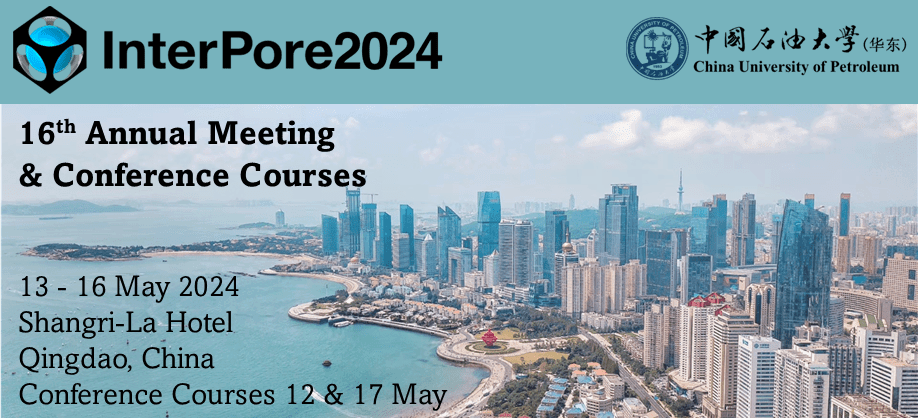Speaker
Description
Geochemical reactions are crucial for in-situ CO2 mineralization underground associated with CO2-enhanced oil recovery (CO2-EOR) in a hydrocarbon reservoir. However, the presence of formation water and adsorbed oil on rocks generates physical barriers to CO2’s access to mineral surfaces, which may yield impedance to CO2 mineral trapping that has yet to be accounted for. In this study, we mimic the dynamic oil detachment process using molecular dynamic (MD) simulations and analyzed the influence of an adsorbed oil film on supercritical CO2 (scCO2) diffusion towards the mineral surface in the presence and absence of a water phase. CO2-oil-water-rock reaction experiments are performed to substantiate the simulated data. Our results demonstrate a negative impact of water on oil film detachment by scCO2, which may give rise to a substantial delay in mineral reactions or even impede their occurrence and is unfavorable for mineralized CO2 storage underground. Carbonated water, regardless of whether it is saturated, showcases the same inhibitory effect on the miscibility of scCO2 and oil, thereby restraining oil film detachment and the contact of CO2 with the rock surface.
| Country | China |
|---|---|
| Conference Proceedings | I am interested in having my paper published in the proceedings. |
| Porous Media & Biology Focused Abstracts | This abstract is related to Porous Media & Biology |
| Student Awards | I would like to submit this presentation into the MDPI student poster award. |
| Acceptance of the Terms & Conditions | Click here to agree |




.jpg)
